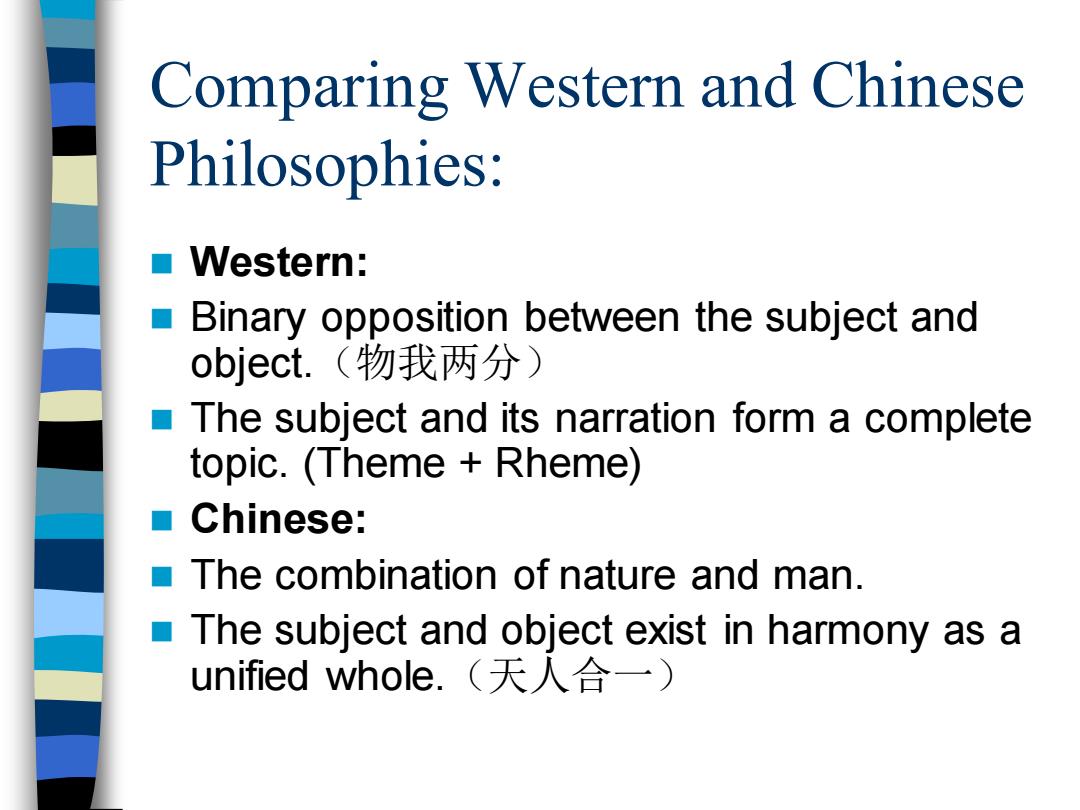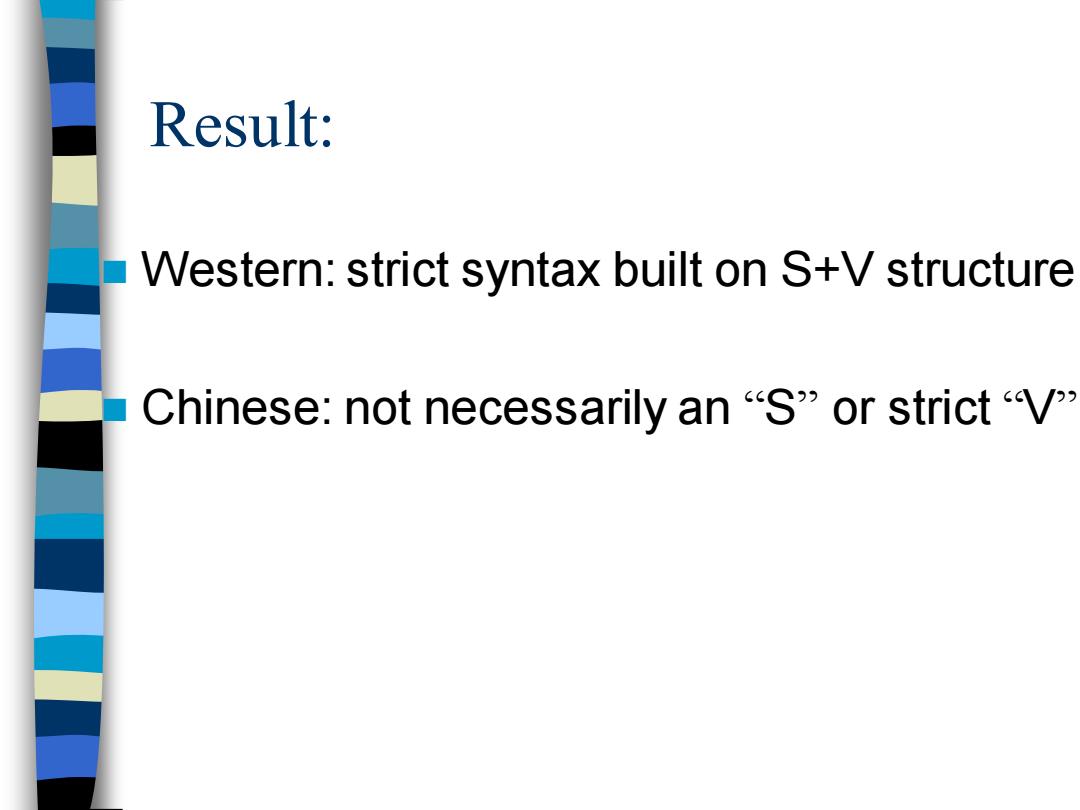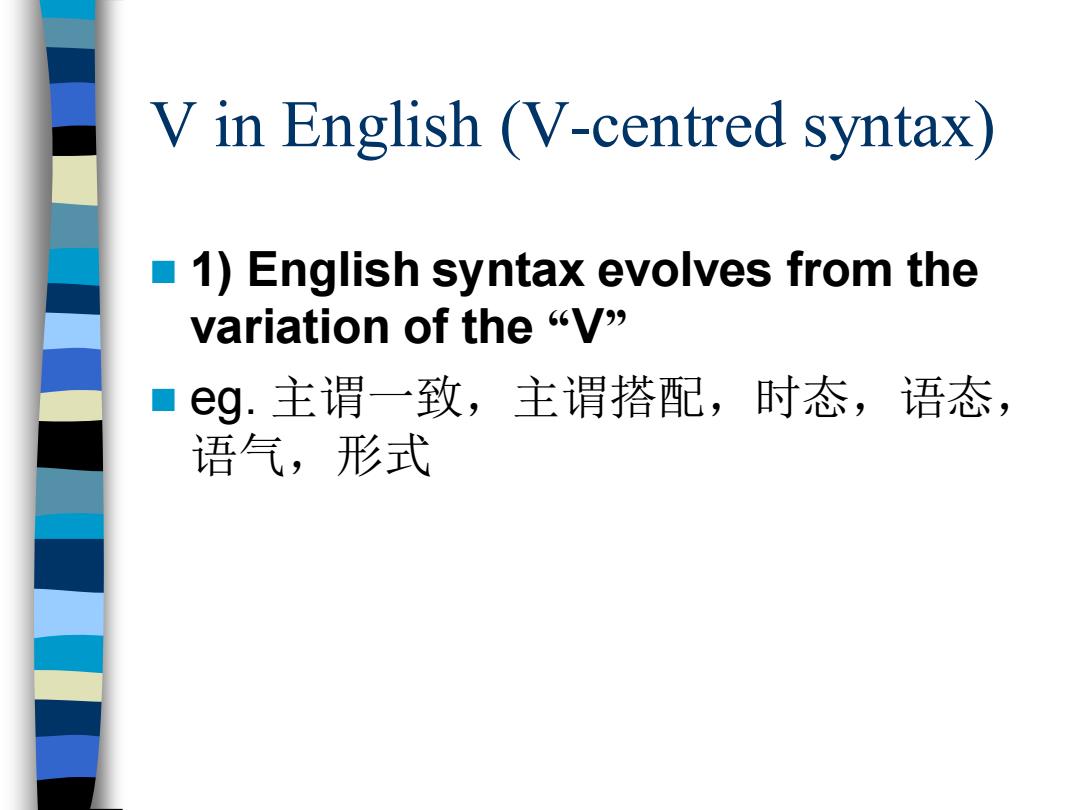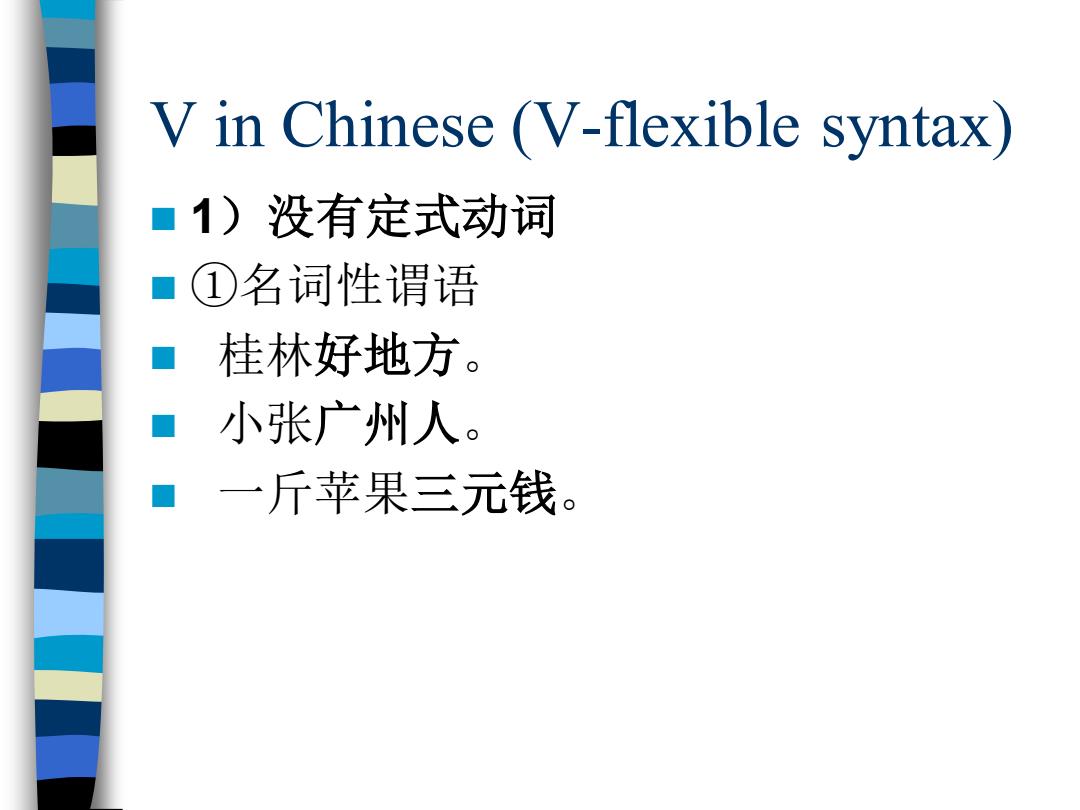
Chapter 3 汉英谓语对比
Chapter 3 汉英谓语对比

Comparing Western and Chinese Philosophies: Western: ■ Binary opposition between the subject and object..(物我两分) The subject and its narration form a complete topic.(Theme Rheme) ■Chinese: The combination of nature and man. The subject and object exist in harmony as a unified whole.(天人合一)
Comparing Western and Chinese Philosophies: ◼ Western: ◼ Binary opposition between the subject and object.(物我两分) ◼ The subject and its narration form a complete topic. (Theme + Rheme) ◼ Chinese: ◼ The combination of nature and man. ◼ The subject and object exist in harmony as a unified whole.(天人合一)

Result: ■ Western:strict syntax built on S+V structure Chinese:not necessarily an "S"or strict V
Result: ◼ Western: strict syntax built on S+V structure ◼ Chinese: not necessarily an “S” or strict “V

V in English (V-centred syntax) 1)English syntax evolves from the variation of the "V" ■ eg.主谓一致,主谓搭配,时态,语态, 语气,形式
V in English (V-centred syntax) ◼ 1) English syntax evolves from the variation of the “V” ◼ eg. 主谓一致,主谓搭配,时态,语态, 语气,形式

2)Seven basic structures of English ■( 1 SV-The train had arrived (quietly)(at the station)(before we noticed it). 2 SVC-She is a student (of GDUFS)(at the moment). 3 SVO-They ate the food (quickly)(that evening). ■( 4 SVOO-He offered her some wine (politely)(before the dinner). 5 SVOC They elected him chairman (unanimously)(at the meeting)(last week) 6 SVOA-She put the plates on the table. 7 SVA-Mary is in her office (now)
◼ 2) Seven basic structures of English ◼ ① SV – The train had arrived (quietly) (at the station) (before we noticed it). ◼ ② SVC – She is a student (of GDUFS) (at the moment). ◼ ③ SVO – They ate the food (quickly) (that evening). ◼ ④ SVOO – He offered her some wine (politely) (before the dinner). ◼ ⑤ SVOC – They elected him chairman (unanimously) (at the meeting) (last week). ◼ ⑥ SVOA – She put the plates on the table. ◼ ⑦ SVA – Mary is in her office (now)

■3)V可以划分出四个单位: ■定式动词(谓词),补语,宾语,状语 ■ 核心=定式动词(predicate)
◼ 3) V可以划分出四个单位: ◼ 定式动词(谓词),补语,宾语,状语 ◼ 核心 = 定式动词(predicate)

V in Chinese (V-flexible syntax) ■1)没有定式动词 ■①名词性谓语 桂林好地方。 小张广州人。 一斤苹果三元钱
V in Chinese (V-flexible syntax) ◼ 1)没有定式动词 ◼ ①名词性谓语 ◼ 桂林好地方。 ◼ 小张广州人。 ◼ 一斤苹果三元钱

■②形容词性谓语 孩子们高兴得跳了起来。 中俄两国人民友谊比山高,比海深。 你父母身体状况怎么样? 刘先生见多识广
◼ ②形容词性谓语 ◼ 孩子们高兴得跳了起来。 ◼ 中俄两国人民友谊比山高,比海深。 ◼ 你父母身体状况怎么样? ◼ 刘先生见多识广

■ ③主谓短语作谓语 我们班一半是广东人。 小王个子高,小陈身体壮。 ■ 这件事校长不知道
◼ ③主谓短语作谓语 ◼ 我们班一半是广东人。 ◼ 小王个子高,小陈身体壮。 ◼ 这件事校长不知道

■2)有定式动词,但非常灵活,且无形态 (时、数)变化 ■①单动 我听过这个故事。 人是最高级的动物。 ②双项连动 他站起来走了。 我们有信心完成任务
◼ 2)有定式动词,但非常灵活,且无形态 (时、数)变化 ◼ ①单动 ◼ 我听过这个故事。 ◼ 人是最高级的动物。 ◼ ②双项连动 ◼ 他站起来走了。 ◼ 我们有信心完成任务